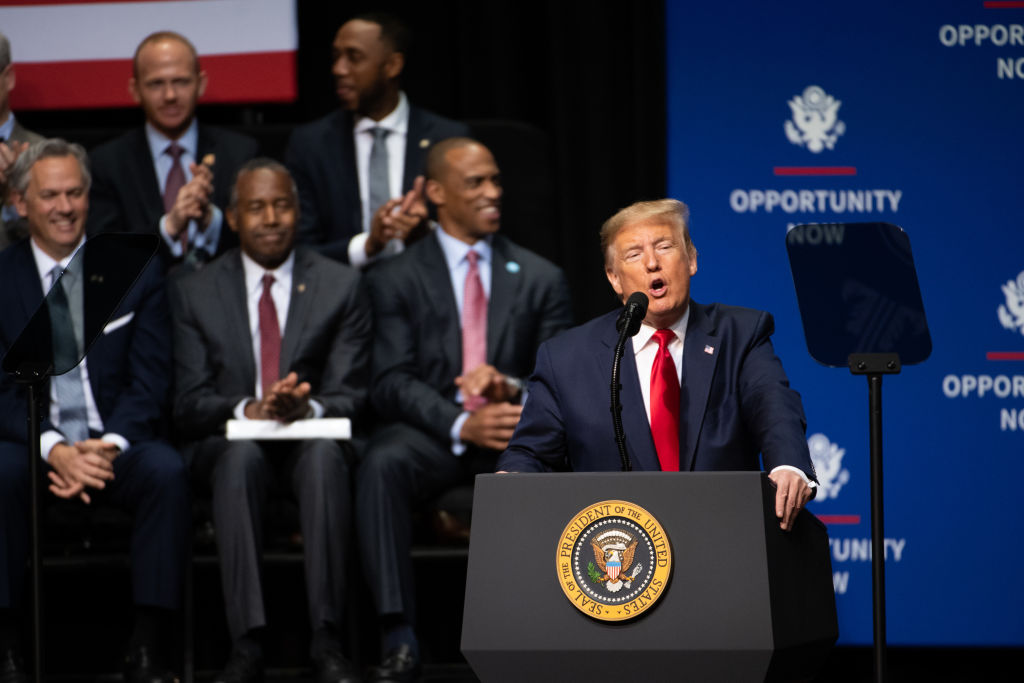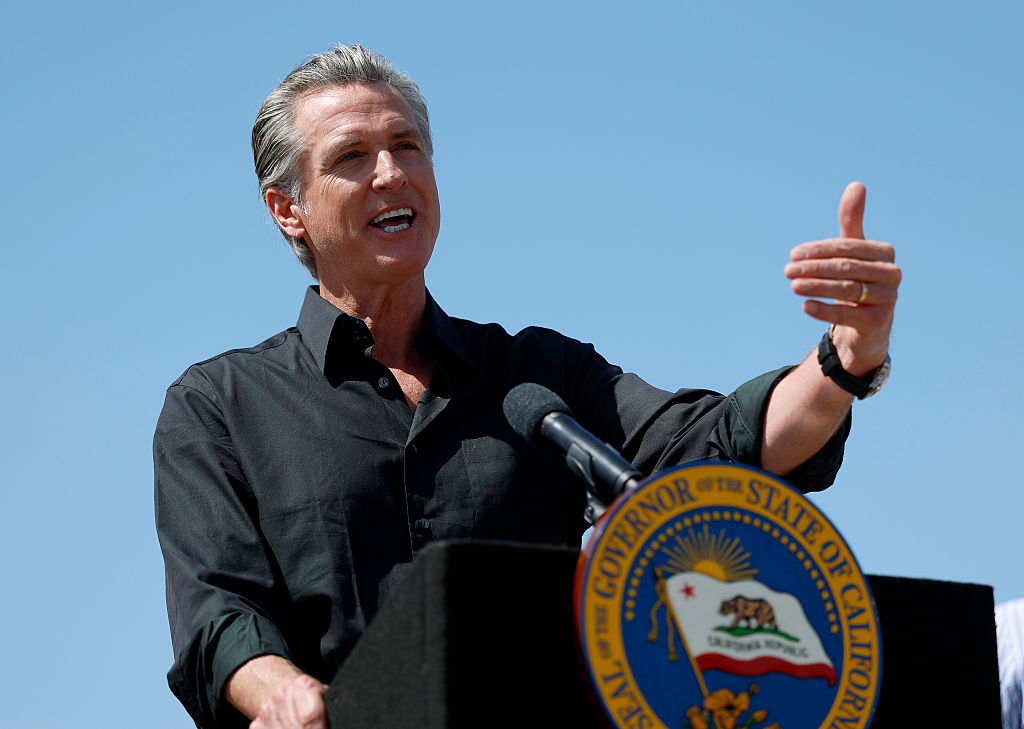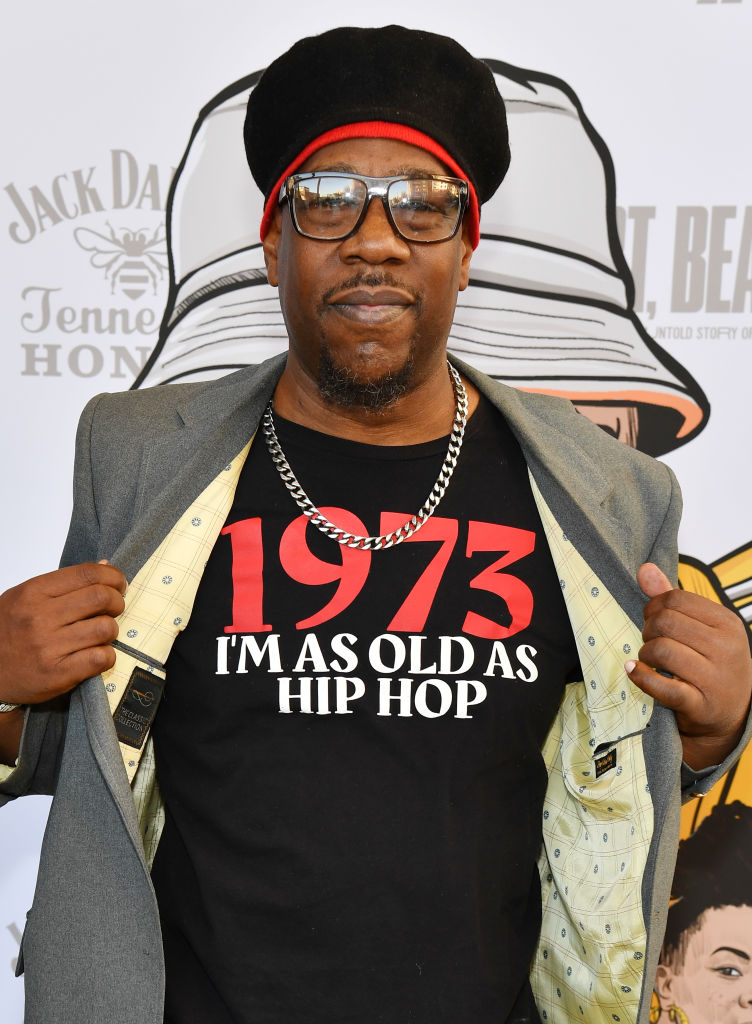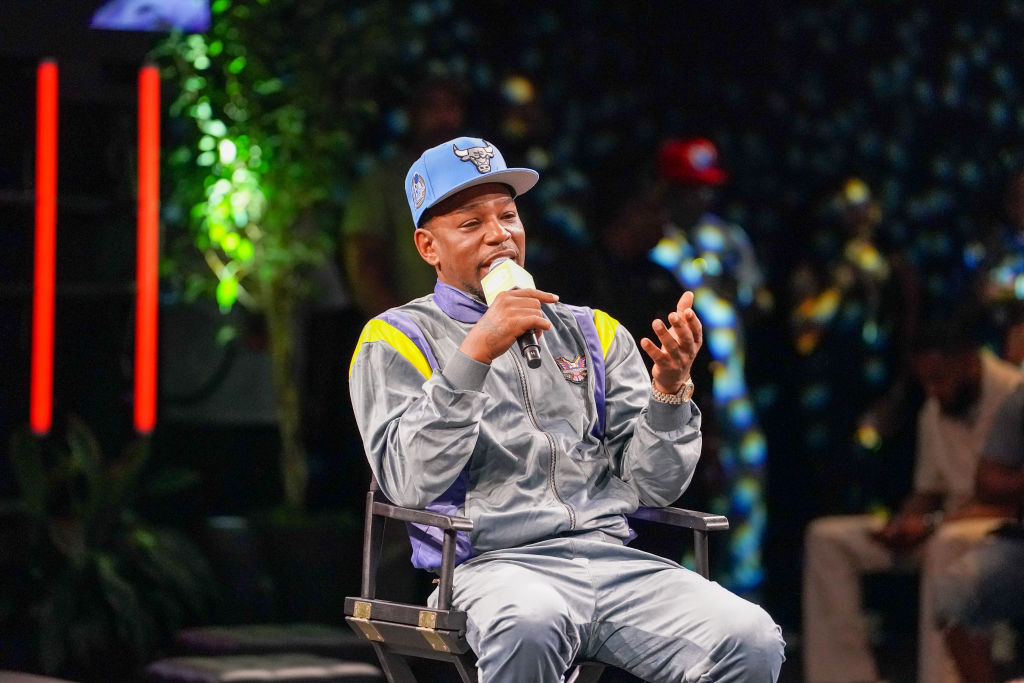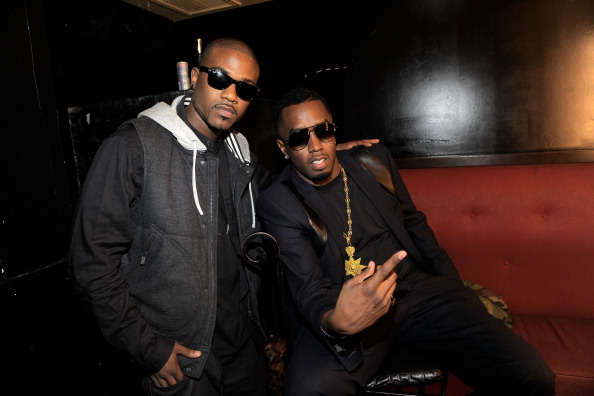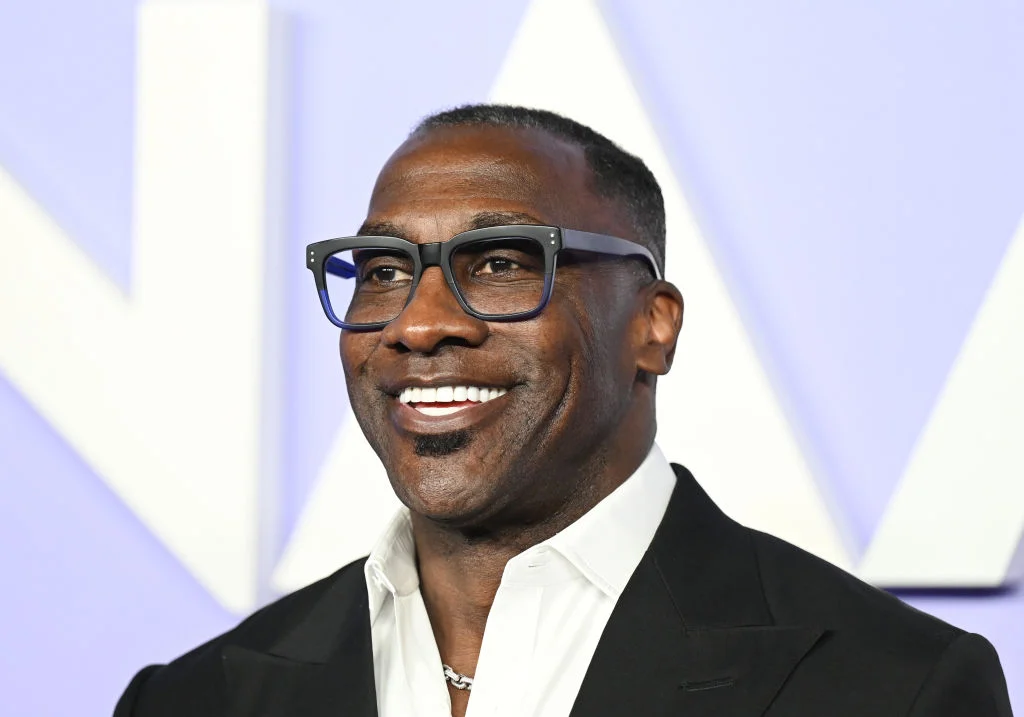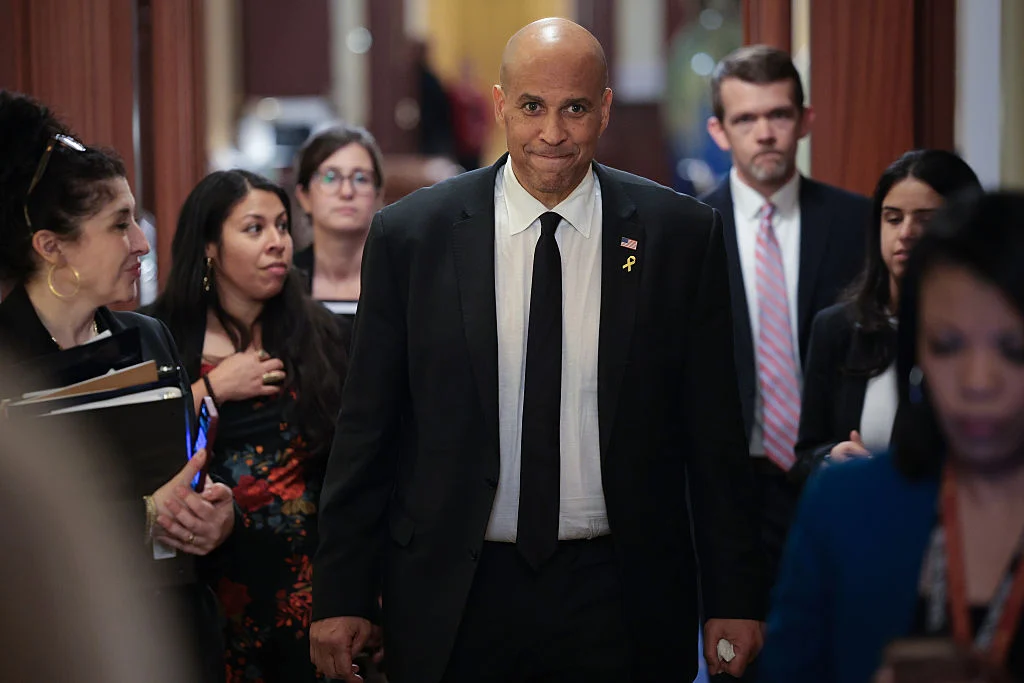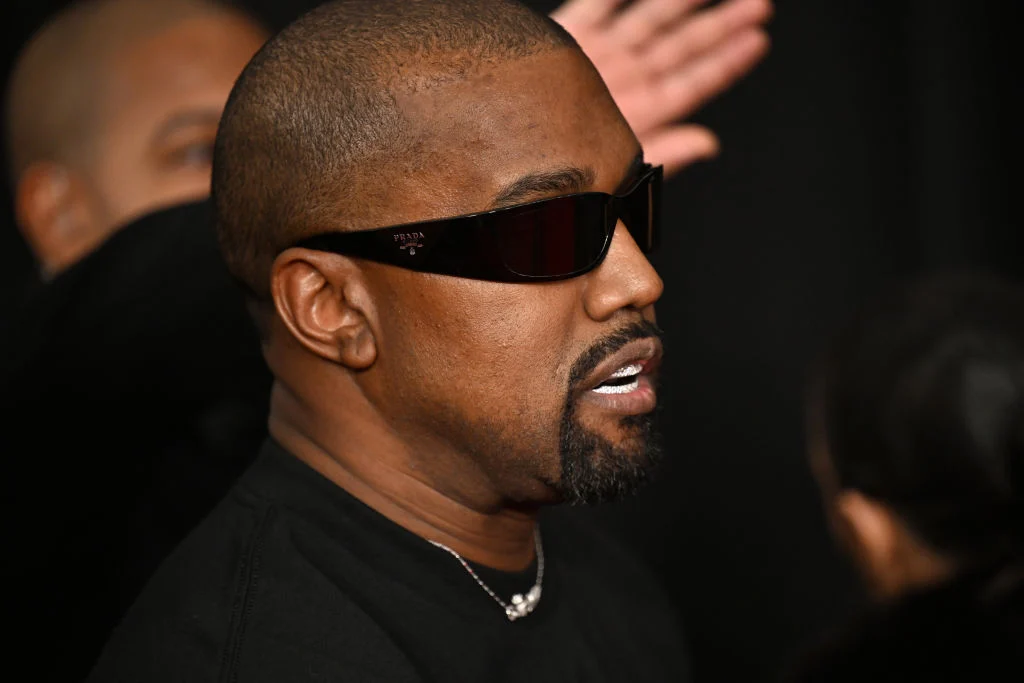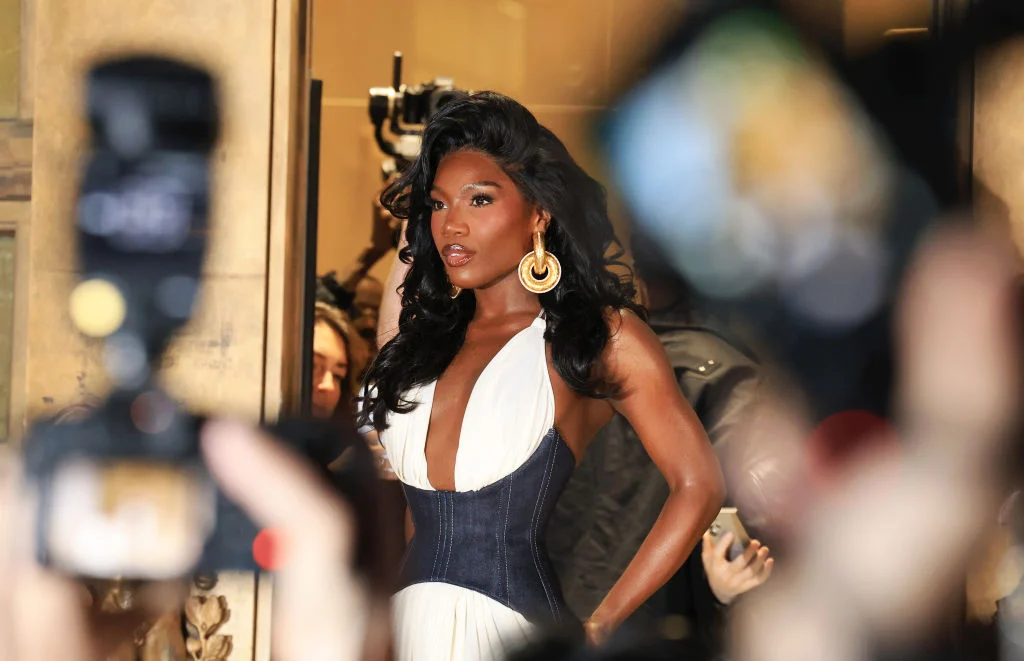EDITORIAL
Source: Sean Rayford / Getty
I don’t know who needs to hear this but the President of the United States is not the president of Israel and yet here we are issuing an ultimatum to two warring nations that have no vested interest in America.
For some ungodly reason, and mostly because President Trump doesn’t know how to mind his damn business, Elon Musk’s frenemy has ordered Iran and Israel to figure out their issues in a two-week period or America will start bombing Iran.
The craziest part of all of this is that Israel just started bombing Iran last week and now Trump and Israel want Iran to relent or face more bombing.
Here’s how CNN put it:
The hope among Trump and his advisers is that Iran — under constant Israeli attack and having suffered losses to its missile arsenal — will relent on its hardline position and agree to terms it had previously rejected, including abandoning its enrichment of uranium, according to US officials.
The deferred decision, which came after days of increasingly martial messages from the president suggesting he was preparing to order a strike, also gives Trump more time to weigh the potential consequences — including the chance it could drag the United States into the type of foreign conflict he promised to avoid.
But negotiating a diplomatic solution in Trump’s condensed timeline appeared to face significant early hurdles.
First, Trump put together some kind of peace team that included Assistant Senior Advisor Steve Witkoff and Vice President JD Vance to talk with Iran but that fell apart before it got started.
According to CNN, “Foreign ministers from Britain, Germany and France are traveling to Geneva on Friday to hold talks with Iranian representatives, and have been briefed on the details of the last deal Witkoff offered to Iran, which Tehran ultimately rejected before the Israeli strikes began. Among US officials, there were not high expectations of success for Friday’s meeting in Geneva, one US official said. But a White House official kept the door open to progress.”
“This is a meeting between European leaders and Iran. The President supports diplomatic efforts from our allies that could bring Iran closer to taking his deal,” a White House official said.
Iran has been consistent in their messaging which is this: “I’m not talking about a ceasefire while Israel is still bombing us.” I’m paraphrasing but you get the point. And here is the funniest part of it all: America hasn’t told Israel to stop bombing Iran! Don’t believe me? Trump literally told Israeli Prime Minister Benjamin Netanyahu, just last week, to “keep going.”
Iran is like,”Why do you keep talking to us when we are just trying to defend ourselves. Talk to your folks.”
I don’t know why the president keeps pump-faking and yet, here we are.
“I think the president has made it clear he always wants to pursue diplomacy. But believe me, the president is unafraid to use strength if necessary,” press secretary Karoline Leavitt said Thursday. “And Iran and the entire world should know that the United States military is the strongest and most lethal fighting force in the world, and we have capabilities that no other country on this planet possesses.”
This is clearly not our fight and for some reason Trump is allegedly willing to back Israel and their bullying ways with all of the force of the American military.
I would like to defer to senior Black official of all Black military affairs who left this message for Iran:
HipHopWired Featured Video
Source: Justin Sullivan / Getty
Before the immigration protests in California began earlier this month, California Governor Gavin Newsom was just another face in the already crowded public imagination of Democratic hopefuls.
The vivacious and personable Newsom had been your quintessential liberal governor that Republicans hate. He didn’t just support a woman’s right to get an abortion, he signed legislation allowing those in neighboring states like Arizona to be able to travel to his state seeking abortions without fear.
Once protests began in California earlier this month, the always-ready-for-violence commander in chief decided that he was going to release the National Guard because he can’t stand when people exercise their freedoms against his tyranny. This placed a public spotlight on the liberal state and its governor. By not acquiescing to the president’s demands, Newsom has become all the things people wished the Democratic members of Congress would be. He’s been sharp, stern and fearless. If this were a rap battle, Newsom’s been going bar for bar with the president with no signs of letting up.
When President Trump took to his bootleg version of X threatening to withhold federal funding to the third largest state in the country, Newsom floated the idea of withholding California’s federal taxes.
“We pay over $80 BILLION more in taxes than we get back” from the federal government, Newsom posted on X. “Maybe it’s time to cut that off.”
Trump, who loves to make up nicknames for those that don’t follow his commands, began calling Newsom, “New-scum” and claimed that he should have border czar Tom Holland arrest the governor, Newsom responded: quit talking about it and be about it, wit your broke….
Ok, fine, he didn’t say those words exactly but he didn’t back down and he noted that the Trump presidency was completely off the rails.
“The President of the United States just called for the arrest of a sitting Governor,” Newsom posted on Instagram along with a video of Trump’s comments, ABC News reports. “This is a day I hoped I would never see in America. I don’t care if you’re a Democrat or a Republican, this is a line we cannot cross as a nation — this is an unmistakable step toward authoritarianism.”
“These are the acts of a dictator, not a President,” Newsom posted on X.
While Gavin Newsom has never publicly noted that he has any intention to run for higher office, it would be incredibly naive to ignore the fact that Gavin Newsom is having a moment.
If a doctor went into a lab to create the anti-Trump prototype he would make Gavin Newsom. Trump has failed at just about every business he ever lent his name to, while Newsom was a successful businessman who owns a highly profitable winery and hospitality company. He didn’t just come down an elevator in his outdated luxury digs and declare his run for office stoking the fears and racism that set the country back decades, Newsom came up the hard way. He began his political career in 1996 when he was appointed to the San Francisco Parking and Traffic Commission. The next year, he was elected to the Board of Supervisors. In 2003 he was elected mayor of San Francisco and served in that position until 2011.
Newsom would go on to serve as lieutenant governor of California, from 2011 to 2018. He was elected as the governor of California in 2018 and was re-elected in 2022.
In resisting the evils of tyranny and white supremacy ideology, Newsom has become the face of resistance against an authoritarian regime that has been hellbent on unleashing military force on its own citizens.
And this might be the biggest fight of Newsom’s political career.
D-riders from the Trump regime have all jumped into the fray. Speaker of the House Mike Johnson has called for Newsom to be tar and feathered. Sen. Markwayne Mullin took to X to play in the governor’s face about violence caused by massive police presence during what were peaceful protests to which Newsom shot back: “If you want to discuss violence, let’s start with your state’s murder rate – which is 40% higher than California’s.”
And then there was White House Communications director Stephen Cheung who took to social media to call Newsom “the biggest cuck in American politics,” claiming that he’s allowed “domestic terrorists to desecrate and defile communities across CA.”
And yeah, that happened.
Newsom has emerged as a political stalwart by just not being messy and living for drama. He’s merely continued his one message to the resident’s of his state:
“Los Angeles: don’t take Trump’s bait. Trump wants chaos and he’s instigated violence,” Newsom said in a post on X. “Stay peaceful. Stay focused. Don’t give him the excuse he’s looking for.”
As it stands, the Trump administration deployed 2,000 National Guard and 700 U.S. Marines in the United States of America to stop protests against ICE raids that were going on at children’s graduations and court appearances. Oh, you didn’t know that part? Yep, ICE was running up in full masks and detaining people who were showing up to immigration hearings and using gatherings like graduations to arrest folks and pull them away from their family. Because this mass deportation drama has never been about “Making America white again” but that’s another story for another time.
Governor Gavin Newsom and Attorney General Rob Bonta filed a lawsuit against the Trump administration for escalating chaos and violence by sending in the military without consent or input from the governor.
Newsom is like Batman at this point: a rich man with a tool belt and a vengeance against a regime and he’s using every available weapon in his arsenal to fight back.
Sometimes a hero isn’t the one we want so much as the one we have. Gavin Newsom has become the face against authoritarianism. He is the anti-Trump. And sometimes all you have to be is the one person willing to say something in a room full of people who are sitting on their hands.
And just like that you become the face of a movement.
HipHopWired Featured Video
Source: Paras Griffin / Getty
On Monday (June 9), the Atlanta Hip-Hop community lost one of its legends in Andre “Dres Tha Beatnik” Lett, who passed away after battling an illness. The news of Dres Tha Beatnik’s passing spread throughout the community he helped guide, shape, and connect, and we look back on the life and legacy of Andre K. Lett.
I can’t recall my first time meeting Dres Tha Beatnik, but I can pinpoint it to one of the many times I visited Atlanta to attend and cover the A3C conference and music festival. One of the things that stood out immediately was Dres’ signature hat, which I’ve only seen him without once in person. Along with his hat, Dres’ infectious smile, charm, and energy were just as magnetic in one-on-one conversations as he was onstage hosting events.
Like most people of significance, when they leave this physical plane, several of Dres’ peers, including some of my close friends, such as legendary rapper and producer J-Live and Full Plate Records honcho and rapper Dillon, all shared glowing tributes to Dres on their social media timelines. Others, such as Killer Mike, Mike’s Run The Jewels partner Trackstar The DJ, and many more communicated similar sentiments.
Mayor Andre Dickens of Atlanta also posted a message honoring Dres’ life and legacy with moving words that completely illustrated what he meant to Atlanta and Hip-Hop culture overall.
From Mayor Dickens:
“Atlanta has lost a cultural icon. Dres tha Beatnik was a unifier, a creative force, and a true champion of Atlanta’s hip-hop and arts community. For decades, Dres tha Beatnik brought energy, soul, and authenticity to every stage he graced. His voice uplifted countless artists and inspired a generation. His urban showcase Arts, Beats, and Lyrics helped craft our cultural landscape and uplifted countless artists. We are grateful for his legacy and the light he shared with our city.”
As he shared in this interview with A3C, Dres was a native of Philadelphia who honed his skills early on as a rapper but picked up the art of beatboxing as he bided his time, becoming adept at providing the platter for his rapping compatriots. During his hosting gigs, Dres would showcase his beatboxing along with his deep knowledge of Hip-Hop history. It was mesmerizing to witness the control Dres had over the crowd, proving himself just as vital as the acts he would welcome to the stage.
In full transparency, Dres and I were planning to work together on having him speak on the history of Hip-Hop music and culture with Hip-Hop Wired. Like most grand plans, we could never find the right time to do so, and he began sharing candid updates regarding his health online. Despite his struggles, Dres never muted his joy and always presented his usual affable nature.
In moments such as this, I find it difficult to find the words to honor Dres properly. I feel like I’m coming up short in that regard. I’m also deeply affected by the loss because it highlights how finite time is. Still, if there is something I can positively capture from this moment is that I can choose to live my life like Dres did: loving, loud, and proud, and all under the banner of Hip-Hop.
Andre “Dres Tha Beatnik” Lett, may you rest powerfully in peace.
—
Photo: Getty
HipHopWired Featured Video
CLOSE
Source: Julia Beverly / Getty
Way back in 2023–back when people just started feeling safe enough to go back outside and Job Corps could still shape the minds of young folks who’d lost their way—Cam’ron realized something that all hustlers do: Why keep giving it away for free when he could be making money off of it?
“I was arguing with n*ggas about two hours over the phone about sports,” the “Oh Boy” rapper said during an interview with Revolt TV. “When I’d get off the phone I would look at it’d be like two hours and 25 minutes and I’d be mad, and I’m like, I need to put that energy somewhere where I can make money because sports and politics are never going anywhere.”
And Cam’ron gave the world: It Is What It Is.
And it was good.
It was a middle ground between sports talk and a barbershop convo feel. It didn’t have the pretentiousness of other sports shows in which former professional athletes sit around and tell you just how much you don’t know about sports. It was just a rapper, and his friend and fellow MCand reformed pastor, Ma$e, kicking it about sports. It used the language of the streets mixed with the knowledge that just about every common fan has and the result was a success. Cam and Ma$e even wear suits.
He once argued masterfully that Pittsburgh Steelers head coach Mike Tomlin was a virtuoso of code switching, who could speak both the King’s English and the language of the street. And Cam was worried that incoming quarterback Russell Wilson and his proximity to suburban living might ruin the rapport that Tomlin had with his team.
Of course, Cam didn’t say it this way.
“Mike Tomlin is very well spoken. He says the right things. You can tell he’s a great head coach on the sidelines, but you can tell that in his off time, he’s a n*gga-n*gga. Russell Wilson ain’t no n*gga-n*gga,” Cam said. “Don’t f*ck real n*gga shit up.”
It was a brilliant articulation of the duality Black men and the difference between those who identify with the cause and those who caution against it.
In 2024, Cam would host a more laid back, casual conversation show Talk With Flee. A one-on-one style show in which the Dipset Cam would wear his chain, du-rag and bravado. If It Is What It Is is Cameron Giles then Talk With Flee is Killa Cam.
And then something started changing. The language from the two shows almost began merging and the conversation on the more buttoned up telecast started to become a bit less tactful.
Then the Diddy RICO trial began and Ma$e, (who has to know more than he’s ever let on considering he was one of Sean Combs’ Bad Boy artists during at least some of the allegations,) became noticeably uncomfortable or dismissive around the subject.
The freak-offs between Diddy, his then girlfriend singer Cassie, and sex workers became a joke, because like most of the rest of America it was jarring to learn that Diddy, one of the most prolific and vocal contributors to Hip-Hop in the past 20 years was in a cuckold relationship, in which he allegedly not only liked watching other men with his then girlfriend, but was willing to pay male escorts to be with her while he watched.
And then Cam had one of the male escorts, a man that goes by the name “The Punisher,” (né Sharay Hayes) onto Talk With Flee and it didn’t take long for the conversation to go all the way left.
“Was the p*ssy good?” Cam questioned, referring to Cassie.
And this is where the language of the street and the brashness of Hip-Hop become a disservice to the show and a crutch for Cam. There was an opportunity, a very real opportunity for Cam to have an honest conversation about sex work, sexual abuse, and sexual trauma.
This conversation required a level of sensitivity that I don’t think Cam has, or at least hasn’t exhibited. Cassie maintains that her relationship with Diddy wasn’t just physically abusive but sexually abusive. She’s claimed both in her civil suit and during her testimony that the cycle of abuse included threats made to her and her family. She noted that she couldn’t turn down Diddy’s sexual demands even though she found having sex with random sex workers disgusting and humiliating. She claimed that Diddy would threaten to expose her sextapes and make her “look like a slut” by releasing the videos.
“I feared for my career. I feared for my family. It’s just embarrassing. It’s horrible and disgusting. No one should do that to anyone,” said Cassie.
And Cam somehow took all of this trauma and sexual abuse and found a way to reduce it to the worst question possible. He made a horrific situation worse for no reason other than a cheap laugh at a sexual assault survivor’s expense.
Just a few days later while discussing possible rape charges against New Orleans Pelicans forward Zion Williamson on It Is What It Is Cam took aggressive, derogatory shots at an adult entertainer.
After news that an unnamed woman filed rape charges against Williamson, Moriah Mills (who had a relationship with Williamson,) claimed that she was considering taking legal action against the Pelicans star.
Cam didn’t just make disparaging comments about Mills’ claims, he…I’ll let Cam explain it.
“B*tch, you was mad he got another b*tch pregnant and you was upset,” Cam said. “You do porn. N*ggas cum on your face for a living.”
He also noted that Mills should “Shut the f*ck up” before calling her a “C*m-bucket sl*t.”
And if that wasn’t bad enough, he fell into a common trope in rape culture in which he noted that if Mills was telling the truth that there should be “scars and bruises” proving that she was assaulted.
“I just wanna see a little evidence with these accusations,” he said.
“I’m not saying she doesn’t have evidence, I didn’t do any due diligence on this topic, I just read it and was like, ‘Whatever, here we go again,’” he continued.
It’s this dismissive attitude from men that leads to sexual assaults going unreported. As it stands, rape is the most under-reported crime with some 63% of sexual assault victims suffering in silence.
I’m not expecting the “Suck It Or Not” rapper to be a changed man on his new medium, but there was a real moment here for an adult conversation from an almost 50-year-old man to show that he’s grown up. Cam’ron is not a stupid man. He’s not only survived being a cassette tape rapper in a streaming world, but he’s thrived and clearly mastered a whole new domain.
But these conversations that he’s having are sensitive and require a bit more context and nuance from a man who is closer to getting his AARP card than he is his next platinum plaque.
But something tells me that Cam’s going to ignore this missive and keep that same energy, and maybe I’ve been ignoring the obvious, because at this point, It Is What It Is.
HipHopWired Featured Video
Source: Charley Gallay / Getty
For some weird, exhausting, yet completely unsurprising reason, Brandy’s brother continues to insist on dying on Diddy Hill.
This time, Ray J took his foolhardy “free Diddy” campaign to Piers Morgan Uncensored, where, on Tuesday,” the “One Wish” singer proceeded to word salad his way through a declaration that Sean “Diddy” Combs, who is currently on trial in New York for alleged sex trafficking and racketeering, is an innocent man who will be set free soon enough.
[embedded content]
“I personally think it’s gonna happen faster than a lot of people think, because I think we’re all starting to see what this is, even if you’re on the other side of it,” Ray J said. “I mean, the justice system is the justice system. Where does this fit?… It’s off. I don’t like it and I want to be vocal about it.”
This is the first time Ray J has spoken about Diddy’s case since the trial began — and it comes after Cassie Ventura and Kid Cudi both gave damning testimony detailing the violence and harassment they allegedly experienced at the hands of the Bad Boy mogul — but it is far from the first time he’s taken it upon himself to play the role of diddy’s own personal Jonnie Cochran, only without the legal expertise and, well, expertise in anything other than being an obnoxious contrarian with a personal investment in throwing his lot behind an accused predator and abuser.
In fact, just last month, Ray J boldly (and without any indication that he had a clue what he was talking about) declared that the charges against Diddy are “nonsense” and that the disgraced Hip Hop producer would be “getting out,” and, of course, he did so while transparently trying to sound like the gangsta everyone knows he is not.
Ray J defends Diddy on Sneako’s stream“Puffy getting out of all that shit, they’re charging the n*gga for is nonsense, bro. He did something bad that we all seen & that shit is unacceptable, but that’s not what the charges are for” 👀 pic.twitter.com/gqxOsDr03R— FearBuck (@FearedBuck) April 22, 2025
“Puffy ’bout to get out too. On the dead homies, n*gga. Puffy getting out. All that sh*t they trying to charge that n*gga for is nonsense, bro. He did something bad that we all seen and that sh*t’s unacceptable, but that’s not what the charges are for. The charges are weak,” he said. (Seriously? “On the dead homies”??? OK, Temu Kendrick, calm down!)
It’s unclear what Ray J thinks “we’re all starting to see” regarding the trial that would have anyone but him and his fellow Diddler apologists believing Combs is innocent and will soon be released, but he seems to be holding tight to that dream.
Weird flex, but whatever.
HipHopWired Featured Video
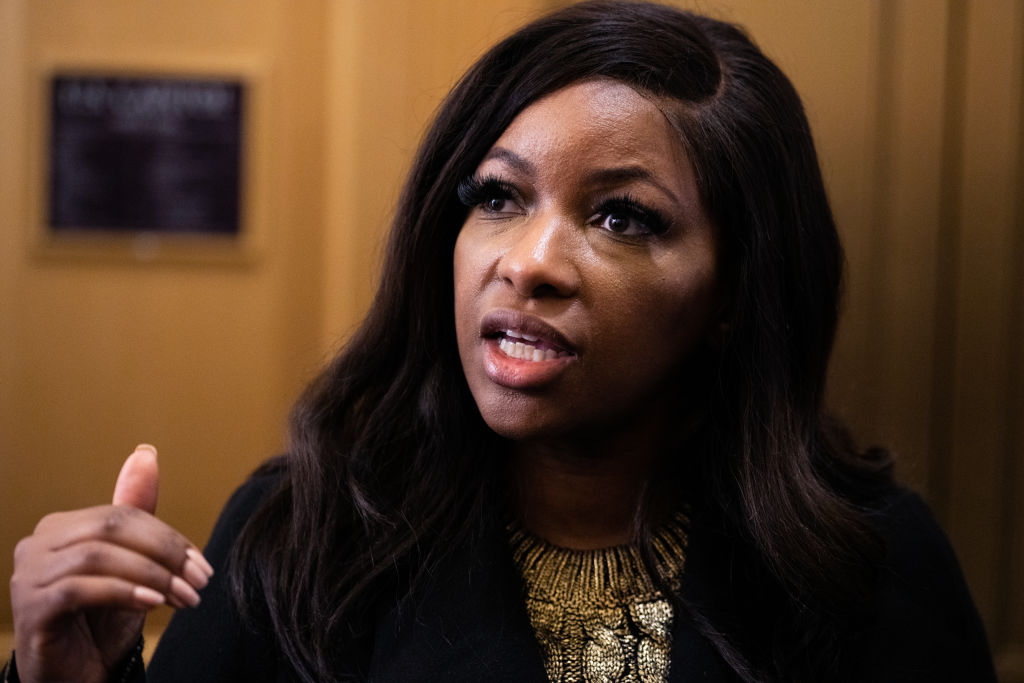
Source: Tom Williams / Getty
Rep. Jasmine Crockett, one of the few Democratic leaders who is consistently willing to call out the absurdity of President Donald Trump without pulling punches and mincing words, is asking when someone is going to get the president the mental help he truly needs after he delivered a comically ridiculous commencement speech at the U.S. Military Academy at West Point over the weekend.
While speaking to graduating cadets, the commander-in-chief used his time on stage to air out grievances and rifle through right-wing talking points, completely politicizing the event and, as usual, making it all about himself. Instead of following the tradition of acting as a president for all Americans, Trump decided to turn the commencement speech into an impromptu Fox News-style segment where he ranted against “drag shows,” boasted that he “liberated our troops from divisive and demeaning political trainings,” and declared that there will be “no more critical race theory or transgender for everybody.”
Oh, and he also randomly ranted about “trophy wives,” golf and some nonsense about Al Capone.
Well, Crockett, for one, is over it.
“I am tired of it,” Crockett said during an appearance on MSNBC on Suday. “I mean, he literally sounds like someone who is broken out of the insane asylum. Like, he just be all over the place. Like, get him some ADHD medicine, if nothing else, because I don’t know where he’s ever going to go,” she continued.
“And I don’t think that those that have gone through West Point expected to have their commander-in-chief address them and start talking about trophy wives or start talking about how he had so many investigations. What a great reminder that you are not qualified to be the person that potentially will command us as troops to go into war. Like, that is not instilling confidence whatsoever. And honestly, our troops deserve better. Our graduates deserve better. We as a country deserve better.”
Trump was on one for the entire Memorial Day weekend, actually. Most presidents, when wishing America a happy Memorial Day, would stick to politically neutral comments that focused on military personnel who died serving their country.
Most presidents.
Here’s y’all’s president on Memorial Day.
So, yeah — perhaps, once again, Rep. Jasmine Crockett is right.
HipHopWired Featured Video
HipHopWired Featured Video
CLOSE
Shannon Sharpe was hit with a $50 million lawsuit by Jane Doe, who has since been revealed by the retired NFL great’s legal team. In the days since the bombshell lawsuit was made public, many are looking into how Shannon Sharpe is handling the matter.
Jane Doe is currently being represented by Texas attorney Tony Buzbee, who typically takes on high-profile cases involving celebrities. Buzbee’s credibility was recently put under question after unsuccessfully attempting to launch a lawsuit against Jay-Z amid Buzbee’s alleged personal issues.
Much isn’t known about Jane Doe, but according to what was found online, she is reportedly an OnlyFans model that Sharpe, 54, met at a Los Angeles gym in 2023 when she was 19. After agreeing to enter into a consensual physical relationship with Sharpe, Doe says things took an odd shift when she realized that the Hall of Fame quarterback took video footage of her performing a sexual act against her consent.
On Tuesday (April 22), Sharpe posted a video statement regarding the case and said that Doe is manipulating footage that paints him in an incorrect light. His legal team has previously fired back and said that Doe’s complaint is an attempt to get Sharpe to pay up and settle the $50 million lawsuit against him.
Online observers have taken notice of the three-decade age gap between Sharpe and Doe and also discovered that the popular podcaster has been accused of forcing a sexual act in 2023 by his girlfriend, Michele Evans. Last year, audio of Sharpe in the throes of passion was leaked online, an incident Sharpe has since apologized for and even flipped into an advertisement for a male sexual enhancement drug.
As referenced at the top of this article, Lanny J. Davis, Sharpe’s legal counsel, put together a statement that Sharpe shared on social media, which reportedly shows Doe’s full name. We’ll share that statement in the body of this post below.
While the credibility of Buzbee is tainted in the eyes of some, some are still wondering if the current legal moves made by Shannon Sharpe are the best course of action. The mudslinging is only ramping up as Doe reportedly released audio that depicts Sharape allegedly threatening her.
We combed through replies on X and will share the commentary we saw regarding this still-developing matter below.
If you or someone you know is contending with sexual abuse or partner violence, please visit the RAINN resources page here to get further assistance.
—
Photo: Getty
HipHopWired Featured Video
CLOSE
Sen. Cory Booker wrote himself in the U.S. Senate history books by delivering the longest speech in the chamber on record, eclipsing the record of Sen. Strom Thurmond’s filibuster by a good measure. As Sen. Cory Booker concluded his marathon speech, many on social media, especially X, are showing high approval for the New Jersey politician’s herculean effort.
Sen. Cory Booker, 55, took to the U.S. Senate floor on Monday (March 31) at 7 PM local time and begin his blistering marathon speech, using the time to voice the concerns of the American public who feel betrayed by the machinations of President Donald Trump, Elon Musk and the DOGE bros, and the gutting of longstanding federally funded government establishments and programs.
Booker’s time at the podium was partly a reading of letters from not only constituents he represents, but others on the other side of the aisle who have been casualties in President Trump and the GOP’s culture war. Speaking frequently in impassioned tones, Booker appeared weary at moments and used the podium to support himself. When he was alerted that he was nearing Sen. Strom Thurmond’s 1957 filibuster record of 24 hours and 18 minutes, Booker quipped that he was near and kept going despite the obvious fatigue present.
Thurmond, the senator from South Carolina, used the filibuster to protest the landmark Civil Rights Act of 1957, which would give Black Americans certain protections and access to the democratic process. Thurmond, holding fast to antiquated views of Black Americans and an obvious allegiance to the memory of the Confederacy, represented a far different Democratic Party than we see today. Adding to this, Thurmond was dogged by rumors that he secretly fathered a daughter with a Black woman whom he allegedly helped by financing her education.
The late senator also voted against the Voting Rights Act of 1964 and 1965 and was a staunch segregationist who pushed for a ban on school integration. Thurmond’s resistance to granting equal access to Black citizens would follow him to the bitter end of his career as he cemented his legacy by being a raging racist.
What Sen. Cory Booker has done in contrast has been deemed symbolic by many, but it isn’t quite a criticism; instead, it is a fact. The United States is splitting apart on party line allegiance and the ever-present reality that this country still has yet to reckon with its past. This is happening at the Trump administration is attempting to sanitize history, do away with DEI, and eliminate social programs that benefited poor, working-class white Americans more than any other group in the nation.
On X, Sen. Booker’s historic feat is all the rage, and we’ve got reactions below.
Americans aren’t a line item in a budget to cut. Your story matters, your voice matters, this fight matters. pic.twitter.com/cDpXIZMtRe
— Sen. Cory Booker (@SenBooker) April 1, 2025
https://platform.twitter.com/widgets.js
—
Photo: Getty
HipHopWired Featured Video
Source: ROBYN BECK / Getty
It’s time to acknowledge what has become painfully obvious: Kanye West’s legacy has imploded.
For years, we have watched his erratic descent play out in real time—his social media meltdowns, his desperate cries for attention, and his shameless alignment with the very people who spit in his mother’s face. But his latest unhinged rants on X, coupled with his long-standing pattern of disrespect toward the Black community, make it clear: this isn’t just an evolution. This is a self-inflicted catastrophe.
The tragic irony is that Kanye’s mother, Dr. Donda West, was a beacon of Black excellence. A scholar, an educator, and a woman who championed the very people her son now tramples over for sport. And yet, here he is, a man who once rapped about systemic oppression and Black empowerment, now reduced to begging for the approval of those who openly despise him. This is beyond a fall from grace—it’s a betrayal.
Kanye’s downward spiral became glaringly obvious in 2018 when he proudly declared his love for Donald Trump, paraded around in a MAGA hat, and told a room full of people at TMZ that slavery was a choice. That moment wasn’t just ignorant—it was dangerous. It was a direct slap in the face to the ancestors who endured unimaginable horrors so he could stand there and spew nonsense. And that was just the beginning.
That same year, he aligned himself with Candace Owens, a woman whose entire brand revolves around attacking the Black community while pandering to white conservatives. His obsession with acceptance from the people who mock him has led him to irrelevance and ridicule. From the “White Lives Matter” shirts to his latest delusional rants, Kanye has proven time and time again that he’s willing to sell out his people for attention.
His latest antics on X only further prove that his desperation knows no bounds. Attacking Black culture while simultaneously trying to weaponize his “Black children” narrative is the epitome of hypocrisy. One moment, he’s disrespecting the community that built him publicly; the next, he’s trying to rally us behind his personal drama. Kanye doesn’t love Black people—he only loves attention. And the sad reality? The world has stopped paying attention.
But perhaps the most unsettling part of this spectacle is not just his behavior but what it represents. Mental health advocate Bassey Ikpi once pointed out that mental illness is not always soft or sympathetic. It can be messy, unlikable, and even impossible to feel compassion for. Kanye is the embodiment of that truth. He is a man whose internal self-loathing has become an inescapable reality, projected outward for millions to witness. And yet, his wealth and fame ensure that no one can truly intervene. He will never hit the rock bottom that forces reflection. There will always be enablers, people willing to stand next to him for proximity to power.
What we are witnessing now is not just another controversial moment, another Kanye meltdown. As Ikpi describes, Kanye is a man orchestrating his own destruction in the most public way possible. He is ensuring that there is no path back, no redemption arc. It is not about whether what he says is right or wrong. It’s about the fact that he has created an environment where his self-hatred is reflected back at him by millions. And that, tragically, may be exactly what he wants.
This does not excuse him. Mental illness, no matter how severe, does not absolve a person of accountability. Kanye has actively harmed the very people who once uplifted him. He has turned his back on his culture, trading dignity for fleeting attention. But it does force us to consider the weight of what we are witnessing. We are not just watching a career implode; we are watching a man sever all ties to redemption, perhaps permanently.
For years, Black culture gave Kanye grace, excusing his missteps under the guise of artistic genius, mental health struggles, or simply misguided rebellion. But enough is enough. His latest spiral has shown us who he truly is—a man so addicted to fame that he willingly torches his community for a few headlines.
So goodbye, Mr. West. Whether by choice or circumstance, the culture doesn’t need you anymore.
HipHopWired Featured Video
Source: River Callaway / Getty
Quite often some of the most serious conversations are presented on social media through viral clips and tweets. Still, in most cases, online responses rarely receive the benefit of the care and nuance needed to be transformative.
In the case of the most recent viral clip from rap phenom and Billboard Woman of the Year, Doechii, this couldn’t be closer to the truth. Her most recent soundbite, in which she shared with DJ Miss Milan that her top “red flag” was “heterosexual men,” generated quite the buzz from rap critics and fans alike who saw her honest quip as confirmation of her hatred for mankind.
https://x.com/Glock_Topickz/status/1898100042839314548
Admittedly, my knee-jerk response was to feel the same way. For many male rap fans who champion the music of what the genre would deem as lyrical music, we saw her comments as hurtful and divisive, a reflection of a growing multitude of society that views heteronormative mannerisms as oppressive. But after some reflection, I had to begrudgingly concede that feelings aside, the sentiment of her words were true. For many Black women who’ve been caught in the crosshairs of the misogyny of rap and popular media, queer people and, in particular, queer Black women, were often fodder for the endless flame of insults and criticism churned out.
Just last month, Doechii, who identifies as bisexual, shared her experience as a middle school student with bullying, a commonality that other Black women and Black people in the LGTQBIA community have spoken about at length, which ties back into the central theme that Black men deserve rightful skepticism for their intentional and sometimes unintentional reinforcement of oppressive conditions.
An article titled, The Status of Black Women in the United States from the Institute for Women’s Policy Research shows that “more than 4 out of 10 Black women suffer violence at the hand of an intimate partner in their lives” while also sharing that they tend to suffer psychological abuse at a higher rate than women from other racial groups. Most of the violence that affects women comes at the hands of men, often stemming from archaic ideas about what a woman should do and be. Add to that the historic elements of racism and in the case of many darker-skinned women like Doechii—colorism—and you have a culture that openly celebrates otherizing people. With all of the violent ideas and actions Black women encounter in a lifetime then, it makes perfect sense for Doechii to feel that way.
It may sting to hear, but somewhere deep inside it reminds us that we have the power to positively affect people and shape their perceptions for better or worse. Instead of condemning her for her opinion, we should choose to focus on her work and the importance of the moment she’s in. She made history just this year when she became the third woman to win a Grammy for Best Rap Album and has not stopped breaking ground in areas where her creativity and innovation can be fully celebrated.
So for others who may have felt as I did when I heard her comments, I would implore you to do what I had to, which is appreciate her thoughts for what they were and continue the work of making a safer world for other Black people who are also geniuses.

 State Champ Radio
State Champ Radio 